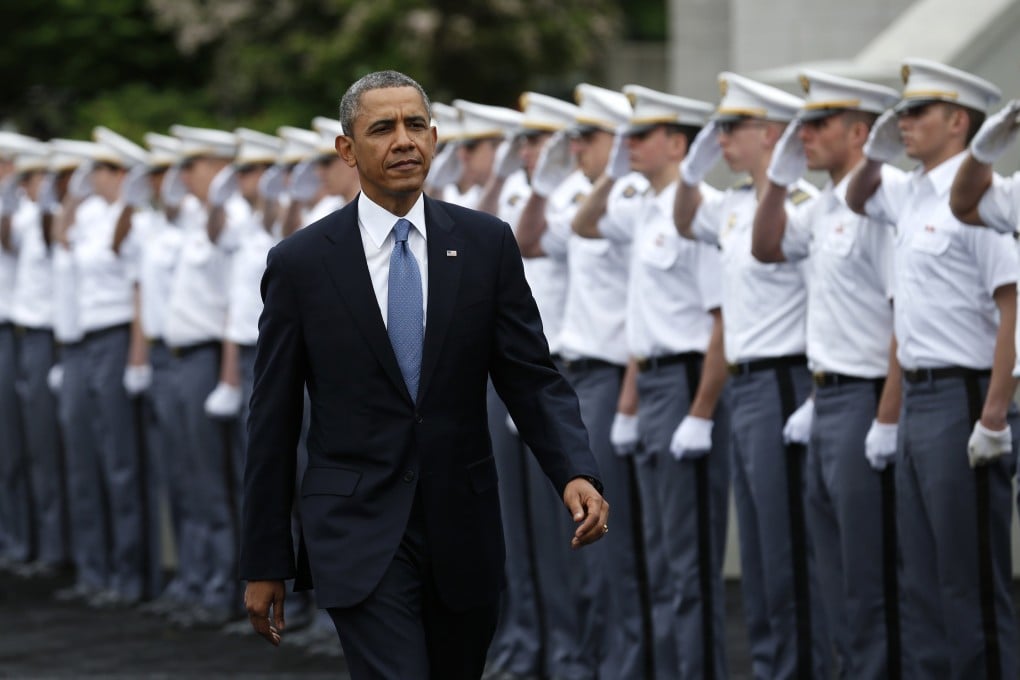Accommodating China's rise is America's only realistic option
Andrew Leung says the US should wield influence through the power of its enduring values

President Barack Obama's speech to West Point graduates last month reaffirmed that the US would seek to lead, reminding everyone of America's exceptional status as the "one indispensable nation". However, instead of plans to commit more blood and treasure to the world's hot spots, between the lines was a desire for allies to share the burden, albeit with American help.
This seems to reflect the dramatic turn in public expectations of America's role in the world. According to a Pew survey last December, some 51 per cent of respondents said the US does "too much" to solve world problems. More alarmingly, the survey suggests that Americans now see a US in decline.
On the other hand, for the first time ever, more Americans view China as their country's greatest enemy than any other country in the world, according to a Gallup poll this year. No wonder Obama has been redoubling efforts to shore up America's "pivot" to Asia and negotiations for the Trans-Pacific Partnership, both widely interpreted as a China containment strategy.
So it was a little strange to find no mention of this strategy in Obama's West Point speech. Perhaps this reflects the following realities.
First, the Asian pivot is hardly working. Before its launch, China was largely prepared to leave territorial disputes for future generations to resolve. Now, in response to emboldened rival territorial claims, China is adopting a tactic of "assertive incrementalism" in disputed waters. Exacerbation of these disputes hardly improves regional security or bolsters American influence. Solidarity among members of the Association of Southeast Asian Nations is being split between assertive claimants and the rest who seek to further economic ties with China.
Second, using military dominance to contain China in peacetime is unlikely to be effective in the age of nuclear deterrence.
Third, China has been beefing up its energy security. It is true that it could be vulnerable to sea-lane "choke points" in transporting critical energy and resources. These include the Malacca Strait under the sway of the US 7th Fleet and the Strait of Hormuz near Iran, where events are beyond China's control. However, for years, China has been developing overland pipelines in central Asia. Additionally, a US$400 billion gas deal has now been clinched with Russia.